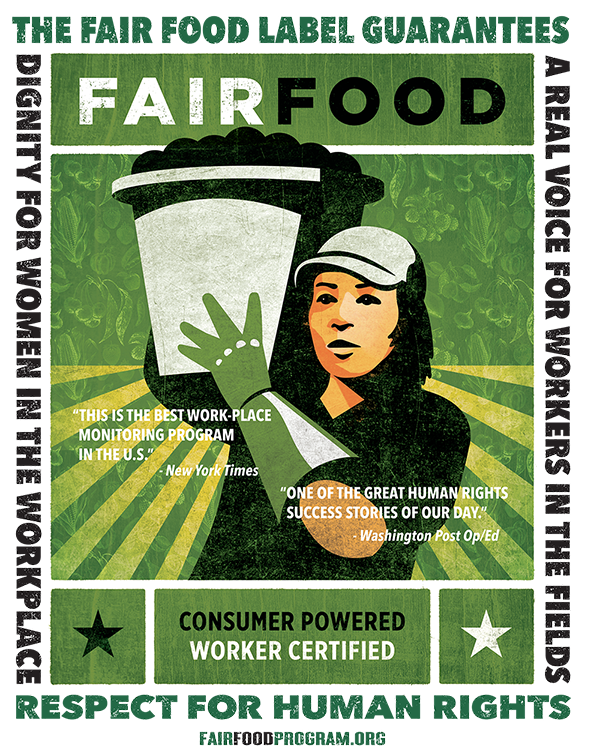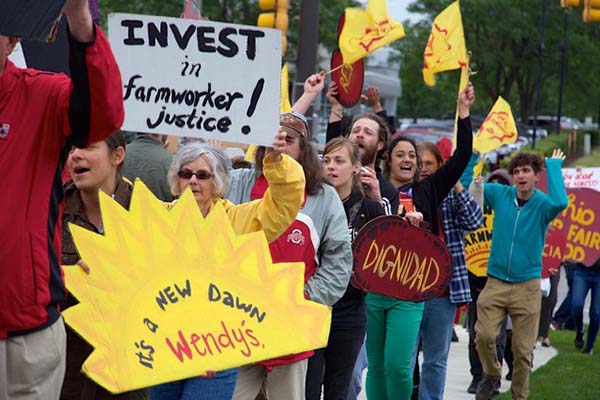
Following a 14-part global series on labor trafficking, Christian Science Monitor picks six “solutions that are working,” and the Fair Food Program tops the list!
Last Thanksgiving week, Christian Science Monitor published an in-depth article on the exploitation of farmworkers in the US and the unprecedented progress that has taken place in Florida’s fields thanks to the Fair Food Program. That article was part of a 14-part series taking a look at the many ways communities and governments are working to stem the growing tide of human trafficking across the globe, including efforts to increase supply chain transparency, labor trafficking lawsuits in US courts, and programs to increase government monitoring and enforcement of the illegal recruitment of migrant labor.
This past week, Christian Science Monitor released the conclusion of its series, highlighting “6 solutions that are working” to end the scourge of forced labor. What, you might ask, was the number one solution on that list? If you guessed the Fair Food Program, then consider yourself an informed consumer!

Here’s what Christian Science Monitor wrote about the Fair Food Program and its new consumer label:
1. ‘Fair food’ labeling for US produce
Melanie Stetson Freeman/StaffFarm workers in Immokalee, Fla., have pushed corporations such as Walmart to submit to “clean labor” audits to cut down on the exploitation of largely Mexican, Haitian, and Guatemalan migrants. Their efforts have helped spur the use of “Fair Food” labels for produce that is grown and packed ethically.
“In the past three years, [the tomato fields in Immokalee] have gone from being the worst to the best” in the country, according to Susan Marquis, dean of the Pardee RAND Graduate School in Santa Monica, Calif.
Last fall, Giant and Stop & Shop, two grocery chains in New England, began carrying the label….
… Such sourcing clues tap directly into the portion of the US consumer base that has begun to turn once routine shopping decisions into moral guideposts. Labor experts see a lot of promise in using labels as a tool to spread the reforms seen in Immokalee to other agricultural centers around the US.
Read the series: Trafficking: In Florida’s tomato fields, a fight for ethical farm labor grows
You can find the full list of six solutions here. In the meantime, as we continue to ramp up to the big Workers’ Voice Tour this coming March, remember that the Fair Food Program’s unique and proven success is exactly why we are demanding — not asking — that Wendy’s join the Fair Food Program without further delay, because the Fair Food Program is the best and only real solution to farmworker exploitation in Wendy’s supply chain.
Justice delayed is justice denied, and the workers who have picked Wendy’s tomatoes for generations in unspeakable poverty and degradation should not have to wait one minute longer for the justice they have earned many, many times over.

